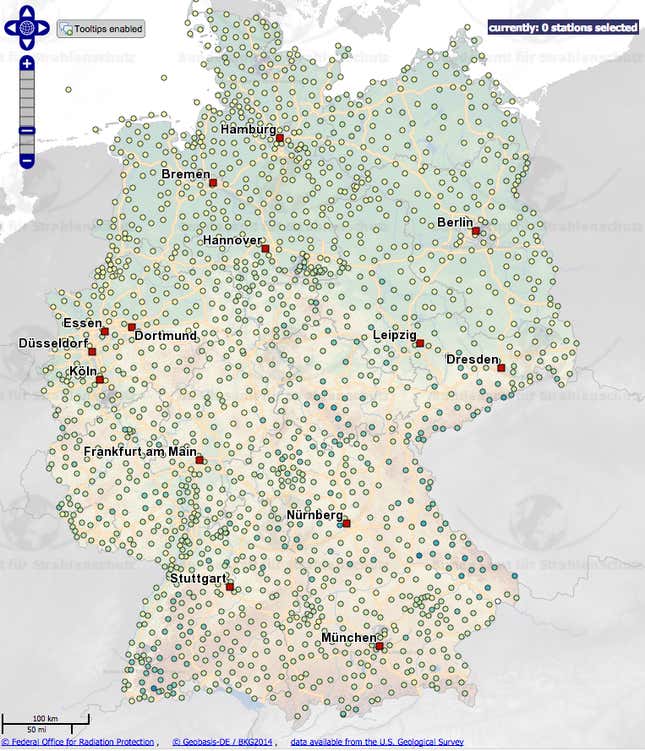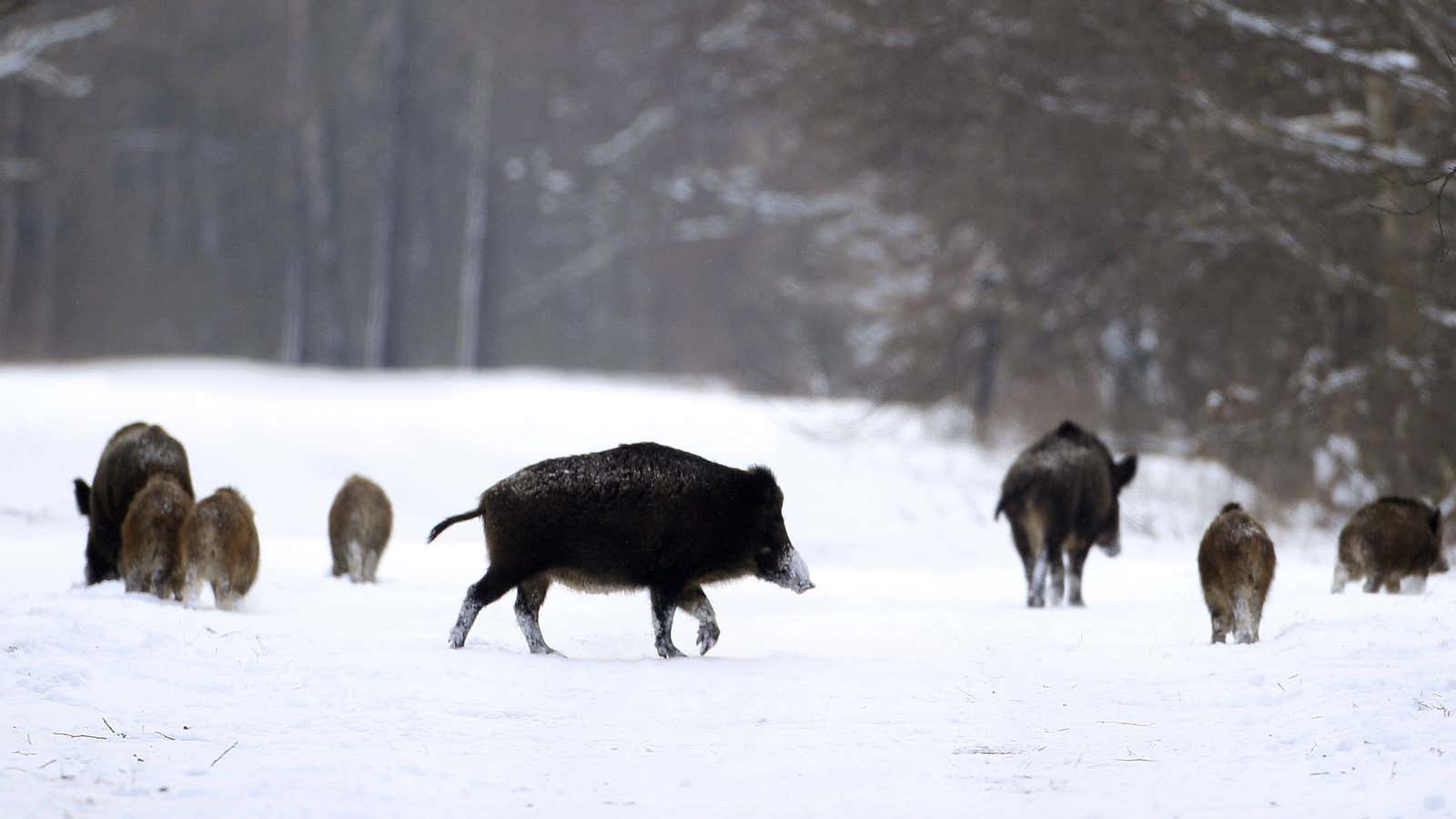Wild boar meat is a delicacy in Saxony, the easternmost state in Germany, which bulges over the Czech Republic. Unfortunately for sausage enthusiasts, the German government reports that a staggering number of wild boars in the area have been oozing radiation—so much so that they’re unfit for human consumption.
In a single year, 297 out of 752 boars tested—more than one third, that is—exceeded the legal limit of cesium-137, which in Germany is 600 becquerels per kg (a measure of radioactivity). Indeed, some boar carcasses measure 9,800 becquerels per kilogram (link in German).
Scientists think this the root of the problem is the Chernobyl nuclear accident—even though it happened in 1986 some 700 miles from Saxon forests. Wind and rain swept radioactive elements west, causing soil contamination as far away as France. Mushrooms and truffles, the favorite food of wild boars in late summer and early fall, tend to store radiation unusually well. In fact, in the last three years, certain types of mushrooms in the area have been found to contain more than 1,000 becquerels per kilogram (link in German). Experts predict it could take as long as half a century before the level of soil contamination finally ebbs.

It’s becoming an expensive problem for the state, as well. Any time game is too nuked-up to sell, it has to be destroyed—a cost the state shoulders (link in German). In 2009, the German government paid out almost €425,000 ($555,000) in compensation for wild boar meat that was so irradiated it had to be destroyed.
Another place in the world where wild boars roam in big numbers is Japan, especially the areas around Fukushima, the site of the nuclear disaster caused by the 2011 earthquake and tsunami. The Japanese health ministry has found wild boars in the area to contain cesium levels ranging between 79 and 1,900 becquerels per kilogram (pdf, link in Japanese).
